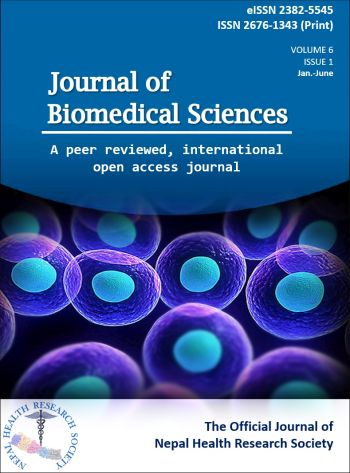Attenuating mitochondrial dysfunction and morphological disruption with PT320 delays dopamine degeneration in MitoPark mice
IF 9
2区 医学
Q1 CELL BIOLOGY
引用次数: 0
Abstract
Mitochondria are essential organelles involved in cellular energy production. Changes in mitochondrial function can lead to dysfunction and cell death in aging and age-related disorders. Recent research suggests that mitochondrial dysfunction is closely linked to neurodegenerative diseases. Glucagon-like peptide-1 receptor (GLP-1R) agonist has gained interest as a potential treatment for Parkinson's disease (PD). However, the exact mechanisms responsible for the therapeutic effects of GLP-1R-related agonists are not yet fully understood. In this study, we explores the effects of early treatment with PT320, a sustained release formulation of the GLP-1R agonist Exenatide, on mitochondrial functions and morphology in a progressive PD mouse model, the MitoPark (MP) mouse. Our findings demonstrate that administration of a clinically translatable dose of PT320 ameliorates the reduction in tyrosine hydroxylase expression, lowers reactive oxygen species (ROS) levels, and inhibits mitochondrial cytochrome c release during nigrostriatal dopaminergic denervation in MP mice. PT320 treatment significantly preserved mitochondrial function and morphology but did not influence the reduction in mitochondria numbers during PD progression in MP mice. Genetic analysis indicated that the cytoprotective effect of PT320 is attributed to a reduction in the expression of mitochondrial fission protein 1 (Fis1) and an increase in the expression of optic atrophy type 1 (Opa1), which is known to play a role in maintaining mitochondrial homeostasis and decreasing cytochrome c release through remodeling of the cristae. Our findings suggest that the early administration of PT320 shows potential as a neuroprotective treatment for PD, as it can preserve mitochondrial function. Through enhancing mitochondrial health by regulating Opa1 and Fis1, PT320 presents a new neuroprotective therapy in PD.用PT320减轻线粒体功能障碍和形态学破坏,延缓MitoPark小鼠的多巴胺变性
线粒体是参与细胞能量生产的重要细胞器。线粒体功能的变化可导致衰老和与衰老相关疾病的功能障碍和细胞死亡。最新研究表明,线粒体功能障碍与神经退行性疾病密切相关。胰高血糖素样肽-1受体(GLP-1R)激动剂作为一种潜在的帕金森病(PD)治疗药物已引起人们的兴趣。然而,GLP-1R 相关激动剂治疗效果的确切机制尚未完全明了。在这项研究中,我们探讨了GLP-1R激动剂艾塞那肽的缓释制剂PT320早期治疗对进行性帕金森病小鼠模型(MitoPark(MP)小鼠)线粒体功能和形态的影响。我们的研究结果表明,在黑质纹状体多巴胺能剥夺过程中,给小鼠服用临床可转化剂量的PT320可改善酪氨酸羟化酶表达的减少、降低活性氧(ROS)水平并抑制线粒体细胞色素c的释放。PT320治疗能明显保护线粒体的功能和形态,但并不影响线粒体数量的减少。遗传学分析表明,PT320的细胞保护作用归因于线粒体裂变蛋白1(Fis1)表达的减少和视神经萎缩1型(Opa1)表达的增加,后者已知在维持线粒体平衡和通过重塑嵴减少细胞色素c释放方面发挥作用。我们的研究结果表明,早期服用PT320可以保护线粒体功能,因此具有治疗帕金森病的神经保护作用。通过调节 Opa1 和 Fis1 来增强线粒体的健康,PT320 为帕金森病的神经保护疗法提供了一种新思路。
本文章由计算机程序翻译,如有差异,请以英文原文为准。
求助全文
约1分钟内获得全文
求助全文
来源期刊

Journal of Biomedical Science
医学-医学:研究与实验
CiteScore
18.50
自引率
0.90%
发文量
95
审稿时长
1 months
期刊介绍:
The Journal of Biomedical Science is an open access, peer-reviewed journal that focuses on fundamental and molecular aspects of basic medical sciences. It emphasizes molecular studies of biomedical problems and mechanisms. The National Science and Technology Council (NSTC), Taiwan supports the journal and covers the publication costs for accepted articles. The journal aims to provide an international platform for interdisciplinary discussions and contribute to the advancement of medicine. It benefits both readers and authors by accelerating the dissemination of research information and providing maximum access to scholarly communication. All articles published in the Journal of Biomedical Science are included in various databases such as Biological Abstracts, BIOSIS, CABI, CAS, Citebase, Current contents, DOAJ, Embase, EmBiology, and Global Health, among others.
 求助内容:
求助内容: 应助结果提醒方式:
应助结果提醒方式:


